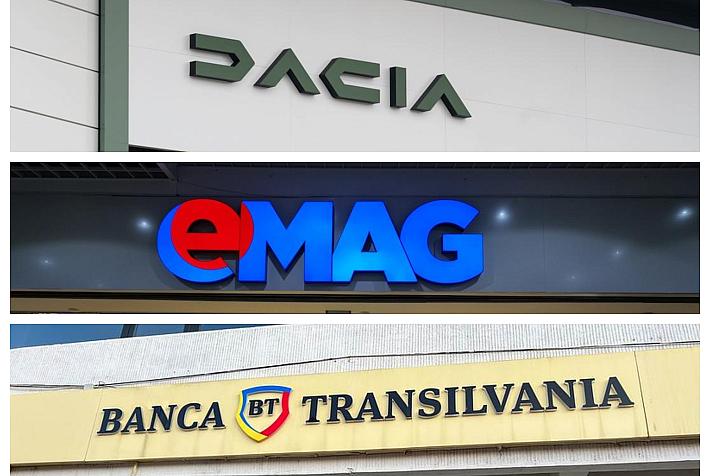Deloitte: Romania’s new turnover tax increases effective tax rate to 20%-30%

The fiscal measures introduced in the law for which the Romanian Government took responsibility in Parliament will have a significant impact, especially for entities subject to taxation based on turnover, where the effective tax rate will increase considerably to 20%-30% after the new regulations come into force, according to experts at audit company Deloitte.
According to the same analysis, the turnover tax could bring an additional RON 6.5 billion (EUR 1.3 billion) to the state budget each year.
The changes in question could come into effect as early as October.
The most affected sectors are technology and telecommunications, the automotive industry, retail, the pharmaceutical sector, and manufacturing. Among the measures with immediate applicability is the restriction of benefits granted to employees in certain sectors, such as the exemption from tax on income exceeding RON 10,000 (EUR 2,000) per month for IT employees, and the reintroduction of health contributions for employees in construction and agriculture.
"This package of measures addresses an acute 'symptom' but not the 'disease' itself, which induces adverse effects on the economy. It is true that the budget deficit must be reduced, and measures in this direction were necessary, but they seem unbalanced since the estimated financial impact for the coming years is derived to approximately 85% from additional taxation and, therefore, to a small extent from expenditure reductions,” said Vlad Boeriu, coordinating partner of tax and legal services, Deloitte Romania.
“It is necessary to start treating the 'disease's cause', which is represented by the high proportion of current state expenditures, far too high in relation to those earmarked for investments, which account for just over 18% of the total in 2023, even if it's an increase from the previous year,” he added.
The most important measure included in this package, in terms of impact, is the introduction of a minimum profit tax, which will be determined by applying a 1% rate to turnover and will be applicable if the profit tax calculated according to general rules is lower in absolute terms than this minimum level. This measure will apply to companies with a turnover of more than EUR 50 million, approximately 1,000 companies or one-third of large taxpayers, according to Alexandra Smedoiu, partner of tax services, Deloitte Romania.
Additionally, a supplementary profit tax will be added for financial institutions (2% of primary income in the first two years, 1% thereafter) and for companies in the oil and gas industry with a turnover of more than EUR 50 million (0.5% of turnover).
Out of the companies targeted by the minimum tax, 70% are expected to be taxed based on their turnover, and only 30% will remain subject to profit tax, according to data reported by companies for 2022 and estimations for 2023. Consequently, for these companies, as well as for taxpayers who owe a supplementary tax, the effective tax rate is likely to increase starting in 2024.
“The most affected will be companies in technology and telecommunications, with the total tax rising to 31%, the automotive industry (30%), retail (29%), the pharmaceutical sector (29%), and manufacturing (28%). Turnover tax also applies to companies in the same categories that have a fiscal loss, approximately 100 out of the total mentioned. The measures will come into force on January 1, 2024, and could bring approximately 6.5 billion lei to the budget next year,” Alexandra Smedoiu added.
The fiscal package also includes new measures regarding the taxing of salaries.
"The provisions regarding the taxation of salaries, unlike most measures, will be applicable from the first month following the publication of the normative act in the Official Gazette. In these circumstances, employers must be prepared for immediate compliance, as these are taxes withheld at source. [...] Among other measures, it is worth noting the increase in the income tax rate from 16% to 70% for income sources that have not been identified, as determined during a personal fiscal situation check. However, this measure will be applicable to income sources identified following checks initiated after July 1, 2024, thus indirectly providing taxpayers with a period to voluntarily comply, which would allow them to benefit from significantly lower tax rates, depending on the type of income,” said Raluca Bontaș, partener Servicii Fiscale, Deloitte România.
The generalization of the RO e-Invoice and the increase of certain VAT taxes, like the one for some homes or sugary non-alcoholic beverages, are also included in the measures.
(Photo source: Juan Moyano | Dreamstime.com)












